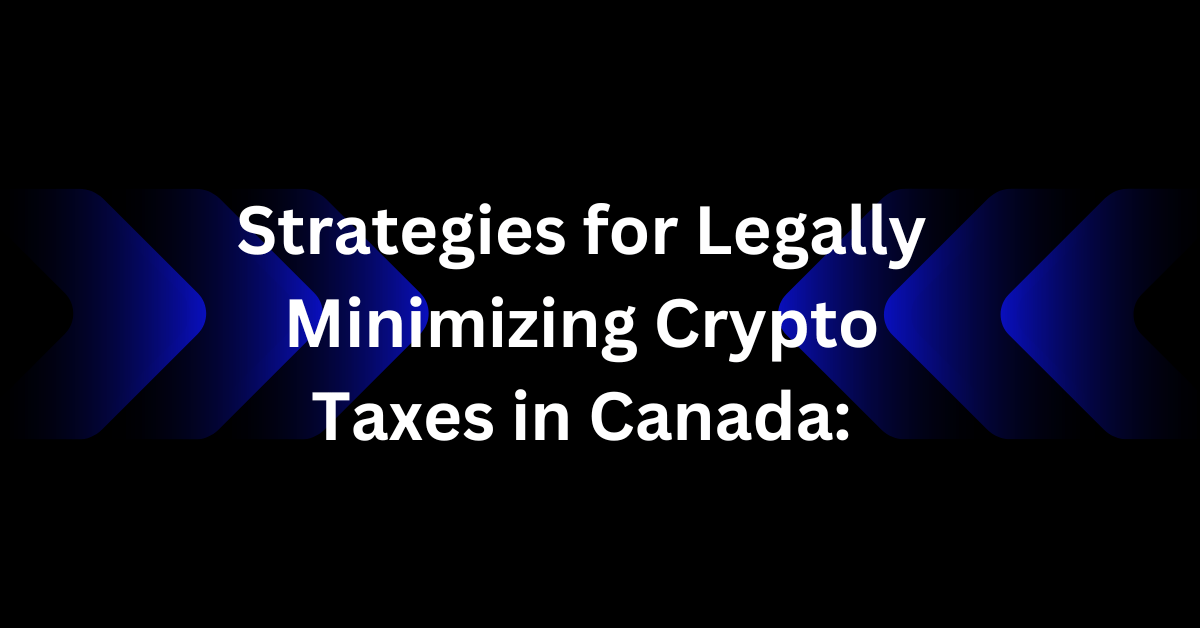Strategies for Legally Minimizing Crypto Taxes in Canada: Tips and Limits
Learn the Ins and Outs of Dodging Crypto Taxes in Canada: Legal Tips and the Cost Involved
If you’re a crypto trader in Canada, you’re obligated to contribute a portion of your earnings to the Canada Revenue Agency. Dive into this article to understand the tax implications on your crypto gains and the income tax associated with the additional profits.
How to Avoid Crypto Tax in Canada?
Discover Simple Strategies to Navigate Crypto Taxes in Canada
As an investor, there are straightforward approaches to sidestep crypto taxes based on your earnings. To delve deeper into understanding how to avoid crypto taxes in Canada, including what it entails and the associated costs, keep reading.
Here are some effective methods for crypto traders to minimize taxes:
- Hold onto Your Crypto: If you don’t sell them, you won’t incur any taxes.
- Withdraw Profits in a Low-Income Year: Opt for cashing out during a year with lower income to reduce tax implications.
- Loss Harvesting: Utilize up to 50% of capital losses to offset taxable gains from crypto or other investments.
- Tax-Deductible Donations: Consider making tax-deductible donations, receiving benefits like a 15% credit for the first 200 CAD and 29% for amounts exceeding this.
- TFSA/RRSP Utilization: Leverage Tax-Free Saving Accounts (TFSA) and Registered Retirement Saving Plans (RRSP) with contribution limits of 6500 CAD and 18% of annual earned income, respectively.
These strategies offer avenues for crypto traders to navigate tax obligations in Canada effectively.

What is Crypto?
Crypto, short for cryptocurrency, is a digital currency employing cryptography to facilitate transactions among traders. Functioning as a type of currency, it operates on a decentralized public ledger, maintaining a comprehensive record of transactions conducted by its users.
Crypto doesn’t have a physical presence; instead, it’s your unique key that empowers individuals to transfer units of value from one person to another without the need for intermediaries. It serves as a means of exchange for purchasing goods and services, enabling online transactions without the reliance on traditional physical currency in the form of bills or coins.
Legal Ways to Avoid the Crypto Tax
Crypto traders have several legal strategies to navigate tax obligations, including:
- Loss Harvesting: Offset crypto gains with losses, allowing for a deduction of up to 3000 CAD in income. Excess losses can be carried forward to the next tax year.
- Long-Term Investing: Opt for long-term investments to reduce the taxation burden, with potential benefits lasting up to 12 months, leading to lower capital gains on profits.
- Gift Crypto: Gifting crypto doesn’t incur taxes, as long as the gift value stays under 1600 CAD.
- Utilize IRA or 401-K: Buy or sell crypto through Individual Retirement Accounts (IRA) or 401-K plans.
- Consult a Crypto-Specialized CPA: Seek guidance from a certified public accountant specializing in crypto to ensure compliance and optimization.
- Take Crypto Loans: Consider taking out crypto as a loan to manage tax implications effectively.
- Use Crypto Tax Software: Leverage specialized software to streamline and manage crypto tax reporting.
- Maintain Detailed Records: Keep meticulous records of all crypto transactions for accurate reporting and compliance.
These lawful approaches offer crypto traders ways to navigate tax responsibilities with the Canada Revenue Agency (CRA).
How Much is it?
Crypto trading, whether short or long-term, falls under the same tax rates as Foreign Tax Credit (FTT) and Personal Income Tax (PIT). The applicable rates are determined by the individual’s income:
- 15% on the initial 53,359 CAD of taxable income
- 20.5% on income between 53,359 CAD and 106,717 CAD
- 26% on income between 106,717 CAD and 165,430 CAD
- 29% on income between 165,430 CAD and 235,675 CAD
- 33% on income exceeding 235,675 CAD
These tax rates are applicable to the income generated by crypto trading. Initially, traders are charged 15%, and subsequently, the percentage aligns with the corresponding income bracket.